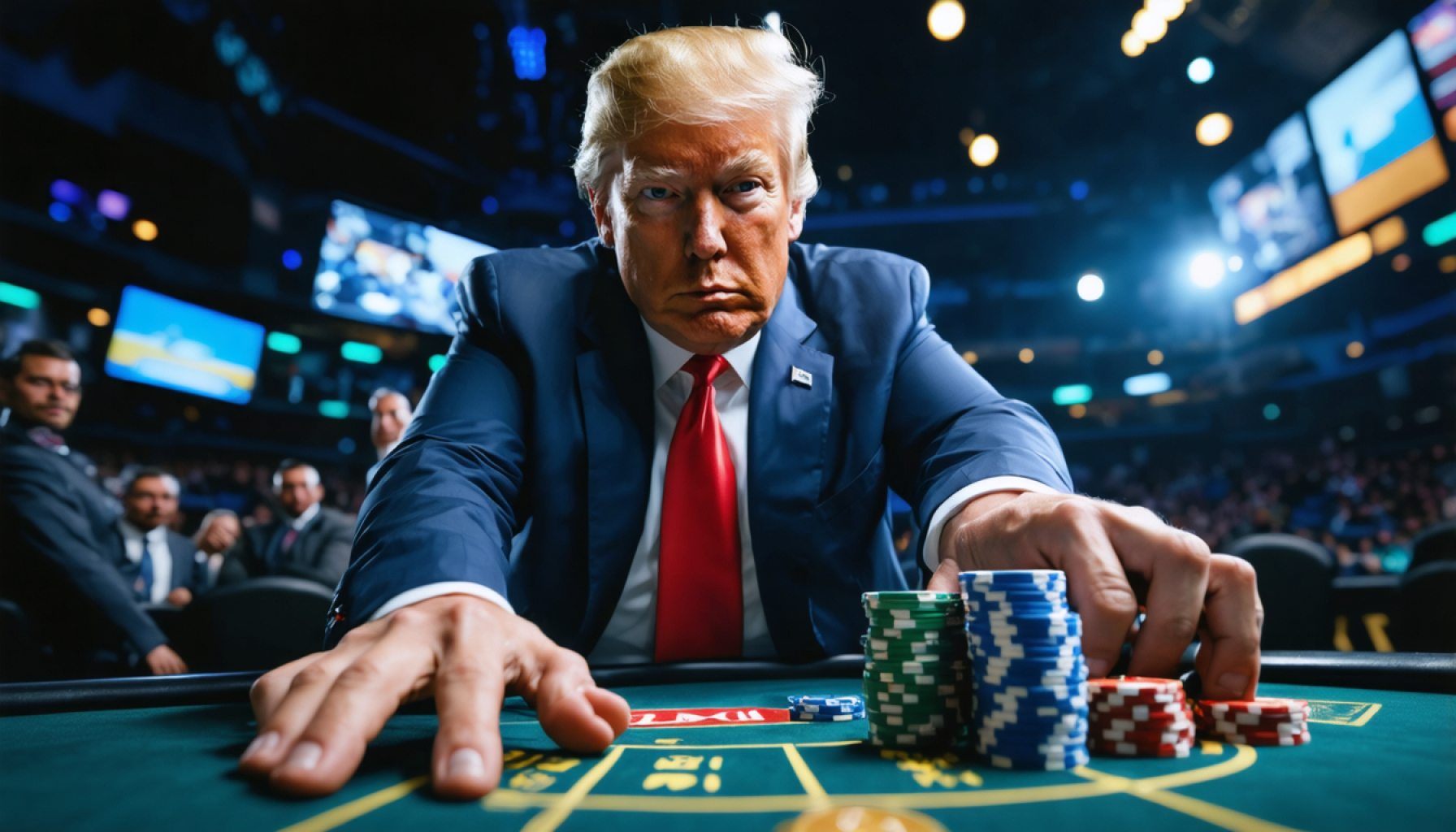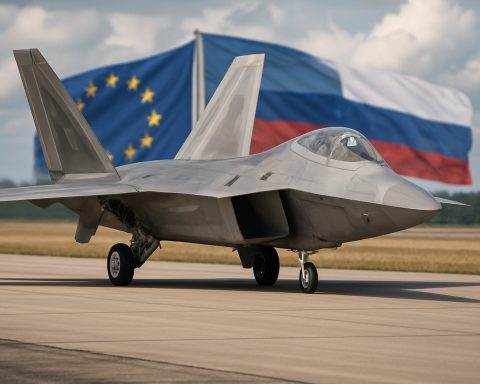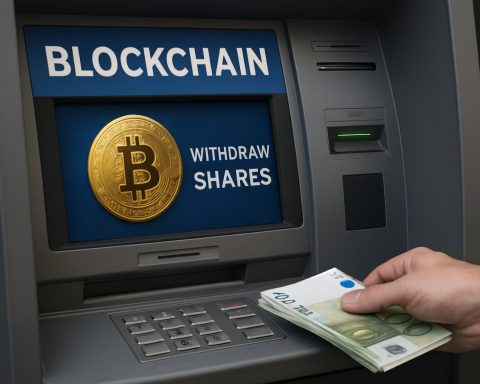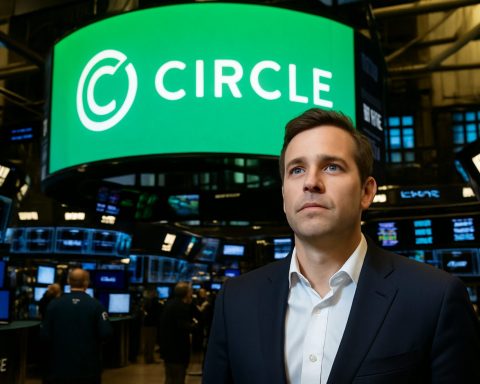- Donald Trump has shifted focus from the casino industry to the cryptocurrency domain, marking a new venture in digital assets.
- A new executive order proposes the creation of a “Strategic Bitcoin Reserve” and “Digital Asset Stockpile,” likened to a virtual Fort Knox.
- The move aims to establish technological supremacy, despite the volatile and unproven practical application of cryptocurrencies.
- Cryptocurrencies named in the reserve, such as bitcoin and ether, experienced a surge in value following the announcement.
- The decision has sparked mixed reactions, with enthusiasm from crypto investors and skepticism from economists.
- Critics are concerned about the transparency and potentially illicit uses of crypto transactions.
- Questions linger about whether this move is a visionary leap toward digital innovation or a risky embrace of volatility.
Once the mastermind behind the towering Taj Mahal casino in Atlantic City, Donald Trump is rolling the dice again—this time with a 21st-century twist. Rather than stacking chips and pulling slots, the former president has set his sights on the shimmering, enigmatic world of cryptocurrency.
In a surprising pivot, Trump recently inked an executive order that stakes America’s claim in the realm of digital assets by creating a “Strategic Bitcoin Reserve” and a “Digital Asset Stockpile.” Picture a virtual Fort Knox, where bitcoin and other cryptocurrencies take the place of physical treasure. The announcement, made during a packed crypto summit at the White House, has ignited curiosity and skepticism alike: Is this the dawn of a new economic era, or a precarious leap into the unknown?
Governments are no strangers to strategic reserves. From the Strategic Petroleum Reserve guarding against oil shocks to China’s pork reserves stabilizing food prices, stockpiling essentials ensures continuity and security. But unlike oil or cabbage, crypto’s role in society remains as nebulous as blockchain’s cryptography. It’s a dance of digits, fluctuating wildly in value, and lacking in proven practical application. Still, the administration argues that such reserves could propel the nation towards technological supremacy.
Yet, the colorful crypto coins Trump intently named—bitcoin, ether, Solana, Cardano, and XRP—experienced an immediate surge in value. This revelation, while thrilling to crypto enthusiasts, leaves economists scratching their heads. For starters, announcing the specific assets earmarked for the reserve isn’t just unconventional; it’s the kind of move that sends traders scrambling to seize profit opportunities, temporarily inflating values.
Indeed, the crypto community knows that fame often comes with folly. The greater-fool theory suggests value isn’t inherently in the asset, but in the belief that someone will buy it for more. Trump’s gambit might just place the U.S. government in that precarious seat, turning it into the next willing—and possibly unwitting—investor fueling crypto’s volatile fire.
The executive order’s ripple effects didn’t pause to catch their breath. On the precipice of a crypto cliff, Bitcoin’s price plunged as traders reacted to the revelation that Uncle Sam wouldn’t be opening its coffers wide enough to buy more than what it already owns. Enthusiastic anticipation was met with a sobering reality, proving once more that in the crypto world, whispers can outweigh substance.
Critics raise eyebrows too, pointing at the opaque nature of crypto transactions which thrive in the shadows of anonymity. They offer an alluring pathway for activities less scrupulous—bribery, corruption, and untaxed wealth transfers—all hiding in crypto’s complex labyrinth. Yet even as these concerns simmer, Trump seems poised at the helm of a tantalizing economic revolution, spinning webs of aspirational grandeur entwined with monetary mystery.
As the U.S. embraces its role as a crypto pioneer, the question remains: Is this strategic reserve a visionary step toward a digital future, or a flirtation with volcanic volatility? Markets hinge on the hope of continuous good news—but Trump’s move is a bold bet that might find more skeptics than evangelists. For now, the world watches, wallets clutched tightly, to see if this gamble pays off or if the chips fall where they may.
Trump’s Cryptocurrency Gambit: Fool’s Gold or Financial Future?
Understanding Trump’s Cryptocurrency Executive Order
Donald Trump’s recent executive order establishing a “Strategic Bitcoin Reserve” and “Digital Asset Stockpile” marks a significant shift in how governments interact with digital currencies. This strategy aims to solidify America’s foothold in the burgeoning cryptocurrency market, seeking to harness the potential of these digital assets for economic advantage. However, this move also presents numerous challenges and controversies that require further exploration.
Key Facts and Analysis
Real-World Use Cases of Government Crypto Reserves
– National Security and Economic Control: By maintaining a strategic cryptocurrency reserve, the U.S. government could enhance its control over blockchain technology and digital currency markets. Such reserves could be used for emergency funding or stabilizing prices during economic turbulence.
– Technological Leadership: A reserve could also position the U.S. as a leader in blockchain technology, encouraging innovation and setting standards globally. This role could be vital as decentralized finance (DeFi) gains traction.
Market Forecasts and Industry Trends
– Volatility and Risk: The inherent volatility of cryptocurrencies poses significant risks. According to a study by the National Bureau of Economic Research, bitcoin’s standard deviation—a measure of volatility—is about four times that of the U.S. stock market. This implicates potential risk for any governmental stake in cryptocurrencies.
– Emerging Crypto Regulations: The rise in digital transactions is bringing new regulatory challenges. As governments like the U.S. delve into crypto reserves, comprehensive regulations will be necessary to govern their use, taxation, and impact on global financial systems.
Criticisms and Concerns
– Transparency and Security: The opaque nature of cryptocurrency transactions has been a point of concern. Policymakers emphasize the need for transparent frameworks to deter illicit activities such as money laundering or tax evasion through cryptocurrencies.
– Impact on Traditional Markets: Establishing significant reserves could influence traditional financial markets and fiat currencies, potentially causing unintended economic consequences. Economists warn that such strategic reserves might upset existing financial systems if not managed carefully.
Practical Advice and Recommendations
Diversification Strategy
For individuals and institutions considering investment in cryptocurrencies, diversification remains crucial. By spreading investments across various assets like bitcoin, ether, Solana, and more, you can mitigate the risk associated with volatility.
Staying Informed
Keep abreast of regulatory changes and government policies on cryptocurrencies. They can significantly impact market trends and asset valuations.
Security Measures
Investing in cryptocurrencies requires robust security measures. Use only trusted exchanges and wallets, and consider cold storage options to protect your digital assets against cyber threats.
Conclusion
Trump’s initiative to incorporate cryptocurrencies into national strategy could either herald a new era of financial innovation or expose vulnerabilities through market volatility. Regardless of the outcome, this move urges individuals and businesses alike to rethink their strategies around digital assets. As the world watches, it’s wise to approach investments with due diligence and awareness of the broader implications.
For more insights into the world of cryptocurrencies, visit CoinTelegraph or CoinDesk for the latest news and expert analyses.







